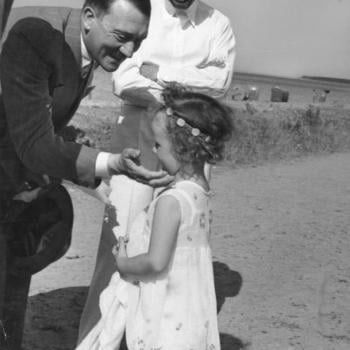Something that dismays me is the common confusion between “Christian orthodoxy” and “fundamentalism.” There are probably many reasons for it, but I think the common one (among Christians, anyway) is that people “burned” by fundamentalism run from orthodoxy due to an over reaction. Some people I know almost break out in hives when they hear “orthodoxy” used in a positive, prescriptive way–as in “There are certain beliefs that are normative for all Christians.” They can only hear that as fundamentalism. The result is a kind of Christian cognitive relativism that reduces “Christianity” to warm fuzzy feelings or ethical behavior divorced from doctrine. But from its very beginnings Christianity included (not reduced to) certain basic beliefs. These are spelled out in the early Christian fathers’ “rules of faith” (Irenaeus and Tertullian most notably among them).
So what is the difference between “orthodoxy” and “fundamentalism?”
Fuller Seminary president E. J. Carnell (1950s) famously quipped that “Fundamentalism is orthodoxy gone cultic.” (The Case for Orthodox Theology) Of course, that by itself doesn’t go very far toward delineating the differences. So I’ll try to do that here.
Orthodoxy is belief in the universal doctrines (dogmas) of Christianity rooted in Scripture and commonly held and taught by all the church fathers and Reformers. They what author Gary Tyra (in Toward a Missional Orthodoxy) calls the “Christological verities.” They include the deity and humanity of Jesus Christ (incarnation of God), Trinity, salvation through Christ and his cross, and salvation by grace alone.
Fundamentalism is (among other things): adding secondary and even tertiary beliefs to basic Christian orthodoxy as NECESSARY for authentic Christian identity (e.g., premillennialism, biblical inerrancy, young earth creationism), insisting that salvation depends on belief in a long list of doctrines including ones NOT PART OF basic Christian orthodoxy, and refusing Christian fellowship with other Christians who are “doctrinally polluted” or “doctrinally impure” because they do not believe everything on the fundamentalists’ long list of essential doctrines.
Anyone should be able to see the difference between Christian orthodoxy and fundamentalism. But confusion arises BECAUSE so many fundamentalists are influential in conservative Christian circles and cause confusion by claiming their long list of doctrines as identical with Christian orthodoxy. And even some moderately conservative evangelical theologians contribute to the problem by labeling any belief espoused by fellow Christians that they happen to disagree with as “heterodox” which means “not quite heresy but for all practical purposes heresy anyway.”
This habit of fundamentalists and conservative evangelicals to expand the list of orthodox doctrines to include secondary beliefs and exclude anything they strongly disagree with contributes to many moderate evangelicals confusing “orthodoxy” with “fundamentalism” and running from the former out of (right) fear of the latter.
We moderate to progressive evangelicals need to embrace classical Christian orthodoxy BECAUSE it is biblical (not for its own sake as if it were true independently of Scripture). We need to call out fellow evangelicals who either 1) expand “orthodoxy” beyond its proper scope to include their pet doctrines, or 2) reject orthodoxy because they confuse it with fundamentalism.















